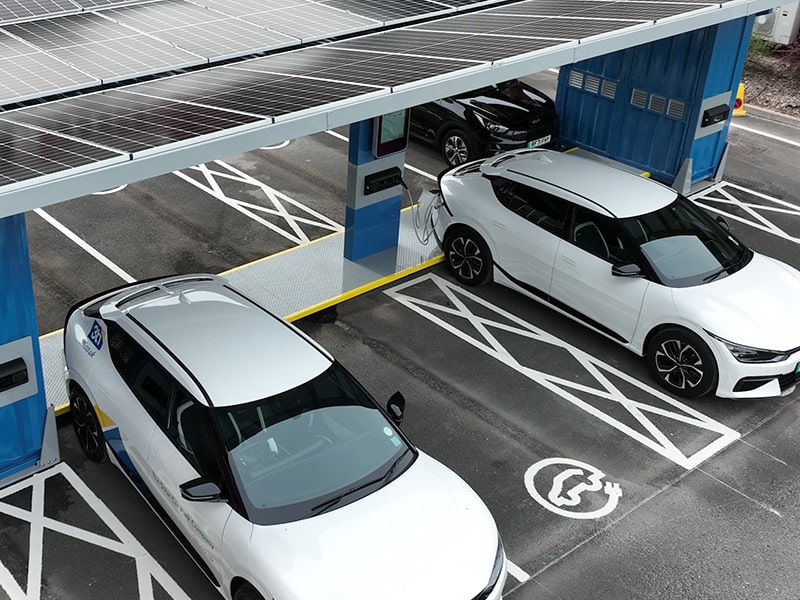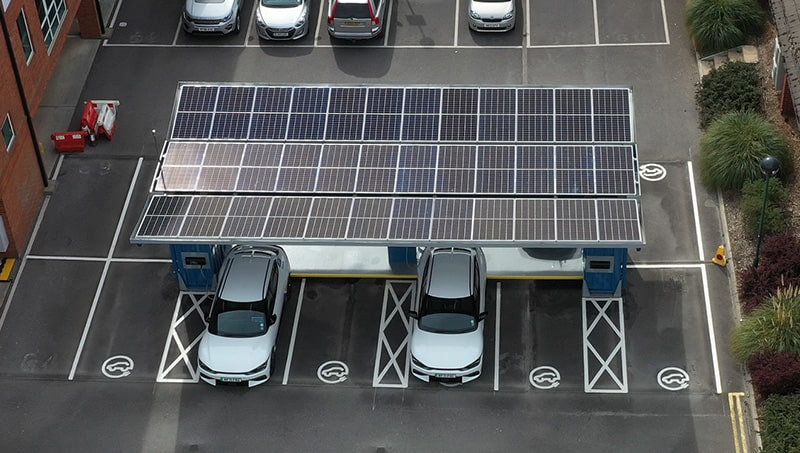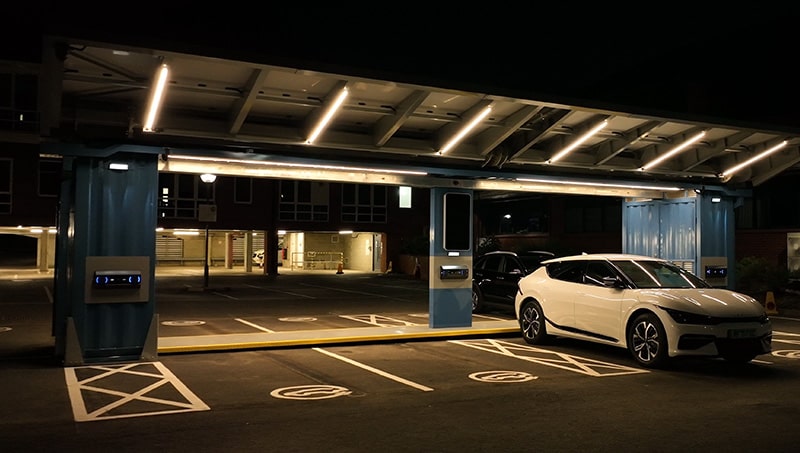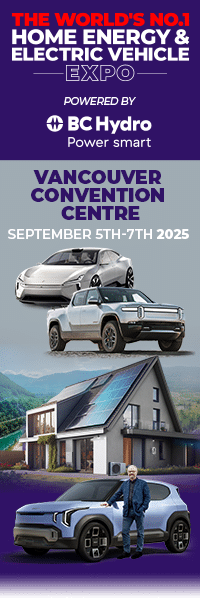
Rapid charging is rapidly becoming big business. Barely a week goes by without another announcement about a rapid charging hub promising ultra-fast, ultra-convenient charging. And yet, not once have I stopped at a rapid charger and thought “isn’t this a great experience”: it fails to deliver the advertised rate of charging, and I feel myself getting fleeced as I pop into the shop for an over-priced coffee and an unhealthy disappointing snack.
EV ownership needn’t be this way. Habit, strategically placed pressure from marketeers, and the consumer landscape is driving us down the tried-and-tested forecourt model. So far it’s a missed opportunity, as one of the best things about having an EV is not visiting a petrol pump – not working out when to fit that 15 minutes into your day, not having to think about where to get the best value petrol, not having the temptation of overpriced and underwhelming confectionary, and not having to see the £ meter counting up into three figures whilst you stand there watching it gleefully do so.
A convenient charge is one where you plug in and walk away, coming back when it suits you to a car that’s fully charged and maybe even pre-heated or pre-cooled ready to start your journey.
A sustainable charge is one that uses the lowest carbon electricity, doesn’t reduce vehicle energy efficiency and reduce battery life.
An equitable charge is one that doesn’t extortionately tax those who can’t charge at home, and doesn’t cost four or five times the retail price of electricity to pay for a facility they’d rather not be using in the first place.
Don’t get me wrong; there’s a place for rapid charging. As with motorway service stations, it’s the most expensive way to refuel and it’s something you’ll likely have to do on a long journey and you don’t have any better options.
But rapid charging is not the right way for regular use, and using it as such is already resulting in peak hour queues and further delays for those without a choice. For many, range anxiety is a thing of the past – what we have now is charge anxiety. Can I get a fast enough charge enroute when I stop? Can I get a full charge while I’m there before I go home?
So let’s shift the focus towards charging when we stop, not stopping to charge.
Cars are parked, on average, for 95% of their life. If it’s not at home, it’s at work or some other destination: a tourist attraction, shopping centre, hotel, and so on. Those are far more convenient, sustainable, and equitable places to charge. And they offer the opportunity to avoid peak-time energy use and peak-infrastructure costs. Better still, they can generate some or all of the energy used locally with solar panels, and avoid grid energy prices – only 20% of which is actually the cost of generating the electricity!

Workplace and destination charge points are much cheaper and faster to install than rapid charging infrastructure, and take advantage of much longer dwell times. Done the right way, they can make use of existing grid connections and offer many more charging locations per-pound, enabling drivers to park all day (or all night) potentially, leaving when it suits them and with a full battery.
Destination and workplace charging can fill the gap in the UK’s EV infrastructure. It’s also a chance to improve the EV ownership experience. Who wouldn’t want a more convenient, reliable and sustainable charging experience? At this point I’ll admit: I have trust issues.
I don’t trust that existing rapid charger locations are motivated to provide a fast EV charging experience, when their profits have long been bolstered by expensive “convenience” stores they want you in for as long as possible.
I don’t trust that these facilities – owned and operated by fuel retailers – want to provide the best EV charging experience, helping to accelerate the transition away from fossil-fuel powered vehicles.
I don’t trust that these facilities want to avoid high peak-hour electricity usage, which is currently generated from high-carbon gas peaking plants.
I don’t trust that these facilities want to avoid costly peak infrastructure costs – which translate into premium electricity costs often exceeding petrol mileage costs – even at today’s prices.
And I really don’t trust facilities which still charge that premium price regardless of how fast they actually deliver that energy – if I pay for fast-service, I expect to receive it!
And sadly, I don’t trust regulators, legislators and opinion makers to see their way through the emerald tinted smoke screen, which is making life difficult for those facility providers that truly do want to offer something much better.
For forty years or more the fossil fuel industry has thrived on delaying the clean energy transition, and despite their efficacious corporate branding machine it appears they haven’t really changed their spots. At best, they’re being forced to adapt to the unavoidable success of EVs and are now finding ways to carve out a new slice of profit and generate shareholder value. At worst, they’re continuing to delay that unavoidable success as much as possible, puppeteering the media as news outlets struggle to offer quality unbiased reporting in a world of click-bait and unregulated social media disinformation.
It’s not coincidence that these hubs are going in with full-fledged shopping facilities, franchise food and drink outlets and even gyms. These aren’t convenience facilities, they’re inconvenience facilities designed to empty your wallet whilst you fill your car.
These businesses are not motivated to provide an equitable solution, they’re motivated to create the biggest profit margins from those who don’t have a choice, providing better service only to avoid losing trade.
Data shows that those who already have EVs mostly charge at home – so perhaps the occasional service-station fleecing is tolerable. Yet more and more people are getting EVs who can’t charge at home, and they’re being swept up in this media maelstrom that charging is something you do once a week as fast as possible.

We have an opportunity to change.
I believe that destination and workplace charging provides the optimal EV ownership experience for those that cannot charge at home, and that’s where our permanent and pop-up solar car park solutions are targeted. These align well with our business customer needs: they want to offer EV charging as an amenity service, perhaps as a free or subsidised employee perk or customer enticement, or perhaps as a premium, chargeable service generating additional business revenue and profit.
Workplace and destination charge points also align with environmental and legislative needs. For very good reasons, from 30th June 2022 all new workplace and domestic charge points should avoid peak-hours EV charging 8am to 11am and 4pm to 10pm on weekdays. That reduces the available charge window for a workplace down to just 5 hours during the working day, meaning a 7 kW charge is too slow for most modern vehicles.
3ti’s solutions focus on three-phase 22 kW charge points, which will give a 60% faster 11 kW charge to most modern EVs, meaning over 200 miles of range can be charged during a 5-hour window. By using locally generated solar energy and battery storage, we maximise the use of low carbon, low cost energy for EV charging, exporting anything we don’t use “behind the meter” at our host site.
I really do believe this is how to do it better, how to make sure EV infrastructure keeps pace with EV demand, and how to transition to the cleanest possible transport and our Net Zero goals as quickly as possible.


3ti is currently crowdfunding on Crowdcube to support business growth and the roll-out of our Papilio3 pop-up mini solar car park and EV charging hub. Seems we’re in good company: our campaign hit its first investment target within an hour of going live publicly. For further information visit papilio3.com or 3ti.co.uk.
About the author
Mark Potter is the Chief technology Officer of 3ti.
Mark is an Electronic Engineer and Computer Specialist with almost 20 years of experience in the aerospace and automotive engineering businesses.
Mark has worked in innovation for Electric Vehicle technology for over a decade. A wealth of experience in the EV industry combined with a passion for sustainability and the environment are an extremely useful skills set in a society now focusing ever more intently on reducing carbon output in general and transforming the mobility business in particular.






